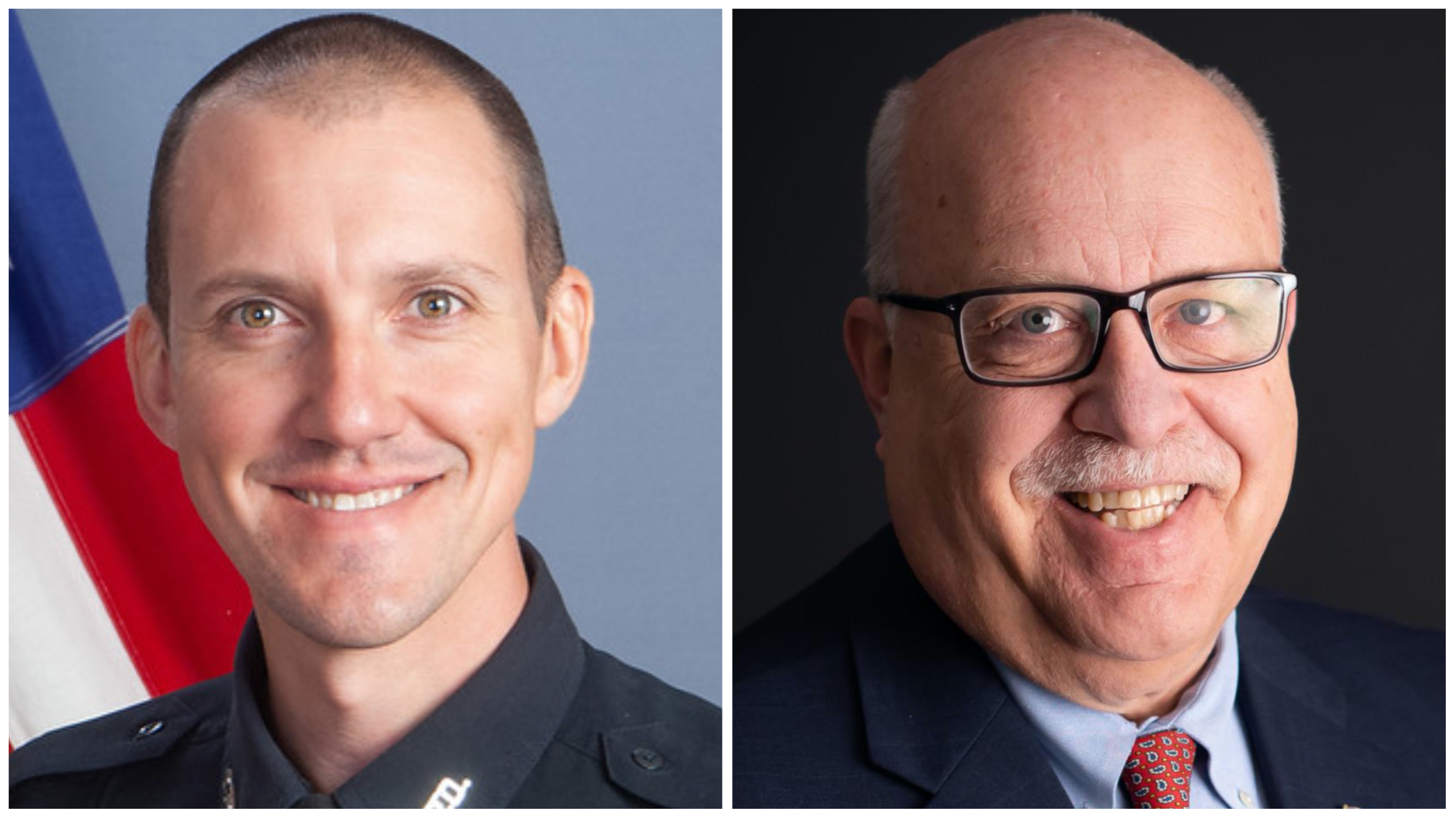Issue about holiday pay creating stalemate in contract negotiations between city, police union

QUINCY — The Police Benevolent and Protective Association Labor Unit 12, which represents the officers and supervisors with the Quincy Police Department, filed a complaint Sept. 14 with the Illinois Labor Relations Board against the city of Quincy.
The city responded two days later by filing a petition for a declaratory ruling from the ILRB. Both sides are awaiting a ruling before their labor dispute goes before a mediator.
The stalemate appears to be over a single issue.
And, as can be expected in a labor debate, each side is grumbling about the other now that the officers have been without a contract for 17 months.
“It’s just been very frustrating,” Quincy Mayor Mike Troup said. “I’ve tried to get meetings scheduled, but we’ve had one meeting that we’ve been able to schedule in the first six months of the calendar year. Timewise, it takes so much time to try to get a meeting. We’ve not had this problem with any of the other groups we end up negotiating with.”
“We’ve done everything we needed to do,” union president Nick Eddy said. “We’ve done things the right way, but we’ve dealt with delays and delays and delays. It’s just a tactic of negotiations. It’s been a painfully slow and agonizing process.”
City claims tentative three-year agreement was reached in July 2021
The last collective bargaining agreements between the union and city expired April 30, 2021. Bargaining didn’t begin until Troup was seated as the mayor in May 2021. The city’s complaint filed with the ILRB, provided by Troup to Muddy River News, claims both sides had reached a tentative three-year agreement in July 2021 that called for:
- Wage increases of 2.75 percent, 2.75 percent and 3 percent for each year;
- An additional step on the wage schedule representing 1 percent higher for patrol officers only after 25 years of employment;
- Allowing unit members the opportunity to contribute the value of their sick leave at retirement into a health savings account or health reimbursement account.
However, Troup learned the police department had previously engaged in allowing officers and supervisors in specialty positions, such as student resource officers and detectives, to be recorded as reporting to work on holidays on which they were scheduled work — even though they were not reporting to nor performing any work on holidays.
“This practice has been in place for a number of years,” said Eddy, who is in his ninth year with the Quincy Police Department. “(Former chief Rob) Copley would tell you it was around when he became chief. It’s been (in place) a long time for the department. It’s nothing crazy.”
“This issue with a holiday pay is not something that’s offered all the employees,” Troup said. “It’s something the police administration has been doing, and I don’t believe it’s been handled correctly, for quite some time. We are not going to bring that into the union agreement.”
Union doesn’t believe Missouri residency should be part of negotiations
The city’s new proposal, made Oct. 14, 2021, included new language regarding holiday time. The union rejected it days later and did not counteroffer. The city said it subsequently withdrew its holiday time proposals. Eddy claimed the city instead tried to “make unilateral changes” to the holiday pay without bargaining.
Troup said he made a proposal during mediation that would have allowed the police department to hire officers who live in Missouri. Officers now must live within Adams County, and the police department is short-handed.
“I said, ‘Look, the council would have to agree to that, but this is what I’m willing to present,’” Troup claimed. “(The union) outright rejected it. Didn’t even counter back with anything else. I was flabbergasted that they had no interest in that at all. I thought there was interest based on our discussion with other officers, so that’s why I said, ‘Let’s throw this out to see if this can help us get through the finish line.’
“Apparently, they aren’t that interested in Missouri residency.”
“Our position on that topic is we don’t feel like that should have (been part of the) negotiations,” Eddy said. “Because at this point, that’s an incentive for both sides. We don’t feel like we should have to give anything up. At any point in time, the city can see the department struggling with (hiring officers) and say, Hey, we want to give you this to help you out.”
The city claims it requested several times after December 2021 to get the tentative agreement in writing to be ratified by membership and the city. Unless the city promised, in writing, it would not change the holiday pay practice, the city said the union would not agree to that. The city claimed the proposal is a “prohibited subject of bargaining.”
City attorney says Pilkington should have not have been part of coin flip
Both sides met on May 13, but they made no progress. The parties then met in formal mediation on Aug. 10, and they reached no agreement.
Arbitration was the next step. The grievance procedure of the collective bargaining agreement calls for each side to receive a list of potential arbitrators. A coin toss would determine which side would go first. Each side then would strike one person from the panel until an arbitrator was determined.
The union’s ILRB complaint, provided by Eddy to Muddy River News, said Deputy Chief Shannon Pilkington represented the city for the coin toss. Eddy represented the union. The coin toss took place on the morning of Aug. 11, and the union won, deferring the first pick to the city. Shane Voyles, a Springfield attorney for the union, contacted Margaret Kostopulos, a Chicago attorney with Ancel Glick that represents the city, less than an hour later.
The city was expected to strike the first name, but a week after the coin toss, nothing had happened. Voyles emailed Kostopulos on Aug. 18 that read, “Please attend to this.” Kostopulos replied to Voyles on Aug. 26, saying Pilkington doesn’t represent the city in matters of collective bargaining.
“In addition to our position that no arbitrable issues exist for interest arbitration, (the coin toss) was direct dealing with a member of administration who did not have authorization to act on behalf of the city,” she wrote in her email.
“I am confident that Deputy Chief Pilkington, a member of management who caucused with you during mediation, is competent to flip a coin,” Voyles replied. “Your suggestion he is incompetent to bind management to a coin flip is preposterous.”
Troup: ‘We absolutely want to get a deal done’
The union’s negotiating team is comprised of Eddy, Voyles, attorney Eric Poertner and three members of the local union — Justin Ebbing, Jessica Hollensteiner and Terry Hagan. Mike Tyler also was part of the bargaining team but stepped down when he was named a deputy chief last week. The union represents about 65 officers, Eddy said.
Troup said he, Kostopulus and Ronald Passarelli, another Ancel Glink attorney, have handled negotiations for the city.
“We feel we have an interest in going to arbitration, because we have not come to an agreement,” Eddy said. “The city thinks we have (an agreement) because of past negotiations, but we do not. They don’t have any actual proof of any of these agreements in prior negotiations. We know the facts are in our corner.
“The way I view it personally, they’re construing things the way they want to construe them when it’s convenient for them. When it’s not convenient for them, the facts are interpreted a little differently. Regardless of how they you interpret them, the facts are what they are. They’re not wanting to proceed with this, because they have a different view of what has been agreed to.”
“We absolutely want to get a deal done, but we aren’t going to add something that is not part of the agreement,” Troup said. “There is no compelling reason to make that part of the agreement. Everything else in the agreement has been negotiated and has been tentatively agreed to. We want to get the employees paid.”
Neither Eddy nor Troup knew when they should expect to learn of a ruling from the ILRB.
Miss Clipping Out Stories to Save for Later?
Click the Purchase Story button below to order a print of this story. We will print it for you on matte photo paper to keep forever.

